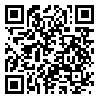Volume 11, Issue 3 (20 2012)
jhosp 2012, 11(3): 61-72 |
Back to browse issues page
Download citation:
BibTeX | RIS | EndNote | Medlars | ProCite | Reference Manager | RefWorks
Send citation to:



BibTeX | RIS | EndNote | Medlars | ProCite | Reference Manager | RefWorks
Send citation to:
Mohegh M, Pourreza A, Rahimi A, Akbari Sari A, Nekouymoghadam M. Health seeking behavior study among Zoroastrian residing in Yazd. jhosp 2012; 11 (3) :61-72
URL: http://jhosp.tums.ac.ir/article-1-23-en.html
URL: http://jhosp.tums.ac.ir/article-1-23-en.html
1- دانشکده بهداشت دانشگاه علوم پزشکی تهران
2- دانشکده بهداشت دانشگاه علوم پزشکی تهران ,abolghasemp@yahoo.com
3- دانشکده علوم مدیریت و اطلاع رسانی دانشگاه علوم پزشکی کرمان
2- دانشکده بهداشت دانشگاه علوم پزشکی تهران ,
3- دانشکده علوم مدیریت و اطلاع رسانی دانشگاه علوم پزشکی کرمان
Abstract: (10916 Views)
Background: People give you an idea about variety of behaviors when confronting diseases. Different factors such as age, sex, economic and social situations have effect on its. Recognition of these behaviors helps politicians to deliver better services. This study aimed to identify health seeking behaviors of Zoroastrian residing in Yazd province due to advanced number of them in comparison to the other provinces.
Materials & Methods: This study is a cross sectional. The sample size was 196 cases which selected by using simple sampling method. The data was collected via the questionnaire, then data were analyzed by spss.11 software with two test of chi square and exact test of Fisher.
Results: The findings showed that 64.3% of the population was female whereas remaining 35.7% were male. 15.58% of participants were single, 76.5% married and the rest of them (7.7%) were widow. Data indicated that 4.1% of individuals were illiterate, 17.3% were high school , 51.3% had diploma, 23.5% had Bachelors degree and 3.6% had Masters Degree or Ph.D. 43.4% of studied population were unemployed and the rest of them (46.7%) were employed. 94.4% of participants had health insurance whereas 5.6% did not had uninsured card. The results showed that the following direct variables had relation with the following mentioned indirect variables sex with the action during the period of being sick, Place of born with reasons of neglecting sickness, marital status with action during the period of being sick, educational status with action during the period of being sick and referring to practitioner in different stages if sickness and using consultation of different groups, occupational status with the first place to get medical treatment, economical status with reasons of neglecting sickness and completion of treatment period and having health insurance with action during the period of being sick and using consultation of different groups.
Conclusion: Considering the fact that educational, occupational and economic status have relation with health seeking behaviors in individuals, developed in education and occupation status could be lead a chance to choose a better health behavior in people.
Materials & Methods: This study is a cross sectional. The sample size was 196 cases which selected by using simple sampling method. The data was collected via the questionnaire, then data were analyzed by spss.11 software with two test of chi square and exact test of Fisher.
Results: The findings showed that 64.3% of the population was female whereas remaining 35.7% were male. 15.58% of participants were single, 76.5% married and the rest of them (7.7%) were widow. Data indicated that 4.1% of individuals were illiterate, 17.3% were high school , 51.3% had diploma, 23.5% had Bachelors degree and 3.6% had Masters Degree or Ph.D. 43.4% of studied population were unemployed and the rest of them (46.7%) were employed. 94.4% of participants had health insurance whereas 5.6% did not had uninsured card. The results showed that the following direct variables had relation with the following mentioned indirect variables sex with the action during the period of being sick, Place of born with reasons of neglecting sickness, marital status with action during the period of being sick, educational status with action during the period of being sick and referring to practitioner in different stages if sickness and using consultation of different groups, occupational status with the first place to get medical treatment, economical status with reasons of neglecting sickness and completion of treatment period and having health insurance with action during the period of being sick and using consultation of different groups.
Conclusion: Considering the fact that educational, occupational and economic status have relation with health seeking behaviors in individuals, developed in education and occupation status could be lead a chance to choose a better health behavior in people.
Received: 2012/01/1 | Accepted: 2012/05/9 | Published: 2013/10/7
Send email to the article author
| Rights and permissions | |
 |
This work is licensed under a Creative Commons Attribution-NonCommercial 4.0 International License. |





